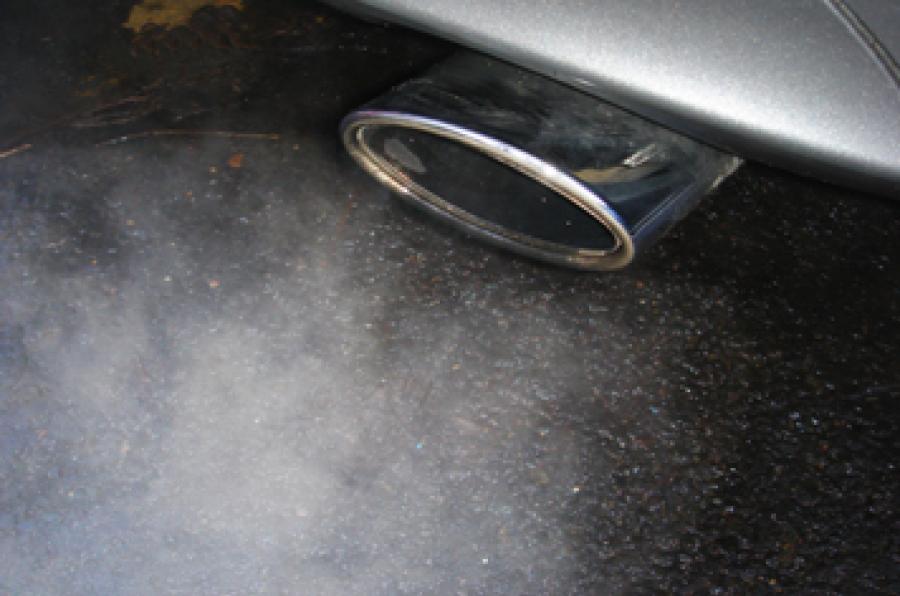The first year rate of Vehicle Excise Duty (VED) for new diesel cars should be raised by up to £800 to help reduce emissions, according to Policy Exchange.
The think tank is proposing HM Treasury increase the first year VED rate for new diesels to reflect the greater air pollution caused, in a bid to encourage people to buy lower emission alternatives such as petrol, hybrid or electric cars, instead. Based on a 50% decrease in diesel car sales, the increase in VED would raise around £500 million a year in additional taxes.
A study launched in January as part of a response to the VW ‘dieselgate’ scandal, found that a large number of diesel vehicles were breaking official emissions limits, despite actually following testing processes.
UK government to spend £650k on re-testing emissions scandal vehicles
Richard Howard, head of environment and energy at Policy Exchange, said: “Air pollution is overwhelmingly a diesel problem. The CO2 advantage of diesels has now been eliminated with data from the Society of Motor Manufacturers and Traders showing that, in 2013, CO2 emissions from new petrol cars were lower than those of diesel cars (on a sales-weighted basis).
“Euro 5 diesel cars sold as recently as 2014 perform no better in terms of NOx emissions than Euro 1 diesels sold in the 1990s. Despite this, Government policies continue to promote diesel vehicles. Consequently, diesel cars have increased from 14% of the car fleet in Britain in 2001, to 36% today. While the latest Euro 6 diesel cars show some improvement over Euro 5, on average they still emit six times more NOx than the latest petrol vehicles.”
A diesel scrappage scheme is also being proposed to provide grants for drivers who trade in their old diesel car or van for a lower emission vehicle.
Ban petrol and diesel cars by 2050
In 2010, a £400 million scrappage scheme was launched, which involved the Government giving a £1,000 grant to the owner of an older vehicle when it was traded in for a new car, with the car manufacturer also contributing £1,000. However, Policy Exchange suggests the whole grant for older diesel vehicle scrappage should come from car manufacturers “given that the manufacturer is at fault for creating polluting diesels in the first place”.
AA’s head of roads and transport policy Paul Watters said: “We wouldn’t support an increase in VED. Overall air pollution is actually falling – yes, there are hot spots of about eight to 10 cities, but these cities are looking at measures to reduce the problem – it’s not just vehicle pollutants.





Join the debate
Add your comment
How about asking cyclists to
Time to charge the cyclist, even if it were a nominal sum, it would bring in a fortune.
Rubbish
Totally agree
Agreed. If I were able to buy and drive a petrol-engined (or electric) car, then I would. My commute to work is 50 miles each way, daily. It takes me roughly 1 hour. It would take twice as long (and cost 50% more) if I used public transport. For me, diesel is the only viable option on the motorway. Provisions for electric vehicles is still far too limited (and very South-centric) - apparently us lot in the North don't matter. Their range is also still too limiting and their pricing still too extortionate for the average person. Taxing us another £800 is just a quick way to raise more money. If they're going to seriously propose this, then they need to plough money into improving petrol efficiency further, and expand provisions for EVs and other alternative fuels.
Petrol has wrecked there minds
In a recent government auction of licences to provide peak hours power generation only one fuel type of power stations won all the contracts, yes a every station will be powered by large Diesel engines to meet peak demand. So in effect all the electric cars will be recharged by Diesel engines at peak times.
In a recent BBC article a journalist borrowed a particulate meter and took messurements of his journey to work. A cycle in his home town, a train journey into London followed by another cycle ride. He was surprised to find the worst participate pollution was on the London Underground, what no diesel!
There was a difference between electric trains and diesel but not as much as you lot would have thought.
If you look at the government environmental website much of the NOx problem in London cones from sunlight acting upon emissions from burning natural gas in huge quantities. The othe big source in London is the large numbers of black cabs fitted with an ancient design of Diesel engine plus buses of very old design with equally ancient designed engines. Modern large trucks are rarely more than a few years old with the latest engines but public transport, trains, taxis and buses are in many cases over 30 years old in design or indeed manufacture in the case of trains and buses.
Says it all really
Agree totally.